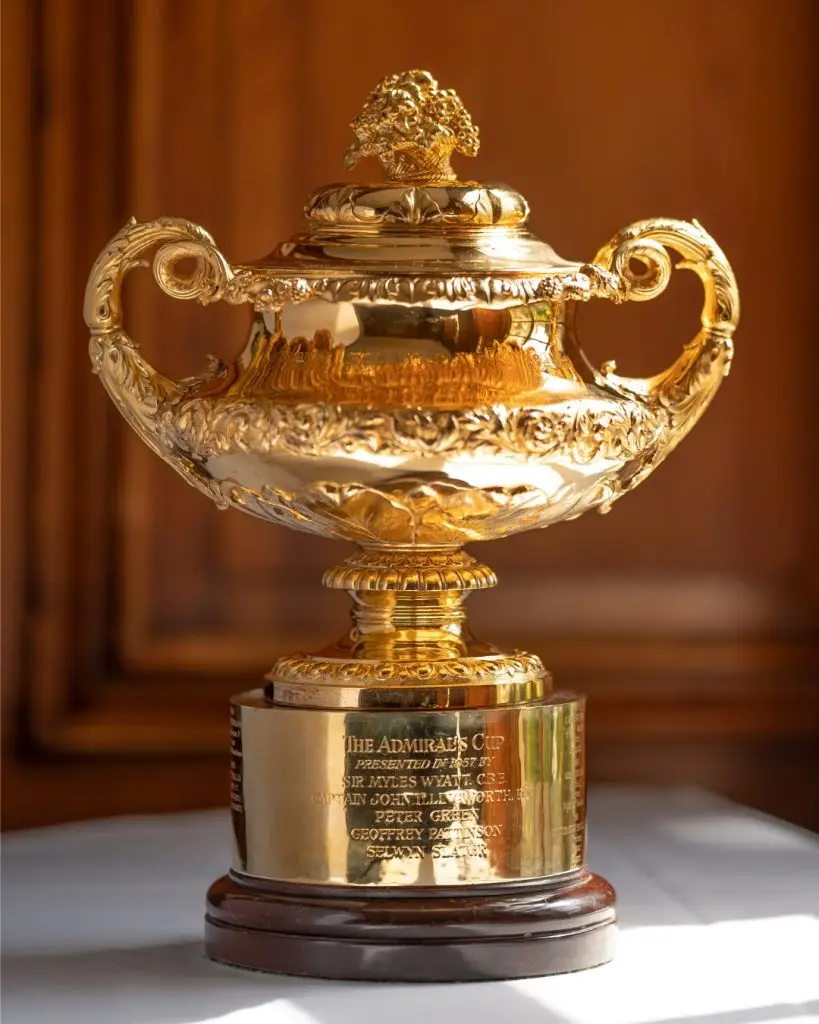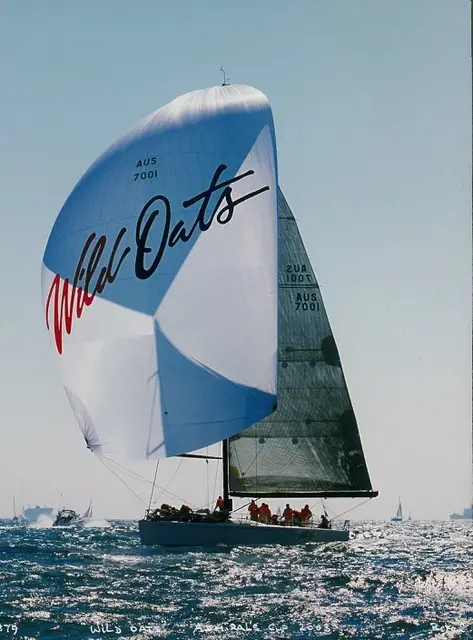
Royal Prince Alfred Yacht Club (RPAYC) is to celebrate the 20th anniversary of its Australian team winning the 2003 Admiral’s Cup in the UK and has registered interest in defending the Cup following the recent announcement that the prestigious biannual event will return to the international yachting calendar in 2025.
The win by Bob Oatley’s Reichel/Pugh 60, Wild Oats and Colin O’Neil’s Rodman 42, Aftershock, will be celebrated at RPAYC on Saturday 22 July with many of the two crews attending. It will be held directly after the opening day of the Mick Hole Regatta, a two-day event held in memory of Hole, who was a grinder on the victorious Wild Oats crew in 2003.
In 2003, the Australians trailed the highly fancied Spanish team by one point going into the ninth and final race of the Admiral’s Cup. Worth quadruple points, Aftershock finished third in Wolf Rock Race, the team’s chances seeming to have slipped away, meaning, Oatley and crew to pull out something special to beat the Spanish Telefonica Movistar team – and they did.
At 3am on 21 July, 2003 in Cowes on the Isle of Wight, RPAYC Australia was declared the winner by seven points to the Spaniards. Back in Australia, followers awoke to the unbelievable news of the team’s victory.
“It’s really special, we’re just so happy,” Bob Oatley said at the time. “We just can’t believe it. People are waking up everywhere and coming in the door to congratulate us. It’s the thrill of a lifetime.
“To win it on the last race, in pretty convincing fashion and also score Top Boat, is really spectacular.”
Oatley’s helmsman, Mark Richards was effusive: “We’re in the crew house, cheering and crying. Winning is massive. It’s hard to take in. We wouldn’t be here without Bob and Colin. They gave all of us such a wonderful opportunity.”
Colin O’Neil commented, “This is wonderful, unbelievable. It was a long night waiting to see if we’d won…”
O’Neil’s helmsman, Colin Beashel, said, “It feels bloody good. We pulled off a miracle.
“We had a great start in the Wolf Rock Race. We picked good shifts going up the Solent, beating for the first 10 miles, then it went light and funny and the other two caught up (RORC’s Sailability and Telefonica Movistar), then the English got in front and it was a chase between the three of us Rodman 42s.
“The wind was 20-25 knots on the tight reach home. The English boat blew up its kite, so we got through them, then Spain caught up to us, then the Poms rolled us again. The three of us raced neck and neck the whole race. It was hard mentally and just as hard physically. We had to execute a lot of sail changes.
“The team spirit is just fabulous, Bob Oatley and Colin O’Neil put this whole thing together. You couldn’t have picked two better blokes. Once we finished, we just had to wait to see what would happen with the big boats. I knew the conditions would suit Wild Oats coming home, so quietly, I felt pretty confident,” Beashel said.
Once back at the crew house in Cowes, Oatley said, “It’s beyond our dreams. We did 20 knots at times coming home. The boat was on fire and we were lucky that the two Farr 52’s finished between us and Bribon (Spain). It meant the team won the Cup. We were named Top Boat and Aftershock won Best Boat in the class. You couldn’t ask for more, could you?”

Australia and the Admiral’s Cup
Inaugurated in 1957 and sailed in teams of three per country, Australia first competed in the Cup in 1965 and represented at everyone until its cancellation in 2001. Changes in rating rules around the world and dissention on the make-up of races, provoked diminished interest. The Cup was resurrected in 2003, with a new two-boat format, but was cancelled again thereafter.
Australia won the Cup at its second attempt in 1967 and won again in 1979, when 15 yachtsmen and six others lost their lives. Australia came close to winning in 1993, losing by a heartbreaking quarter of a point to Germany in the final race, the Fastnet. Australia won again in 2003, the last time the Cup was sailed and minus the Fastnet Race.
By Di Pearson/RPAYC media
***Ends ***

